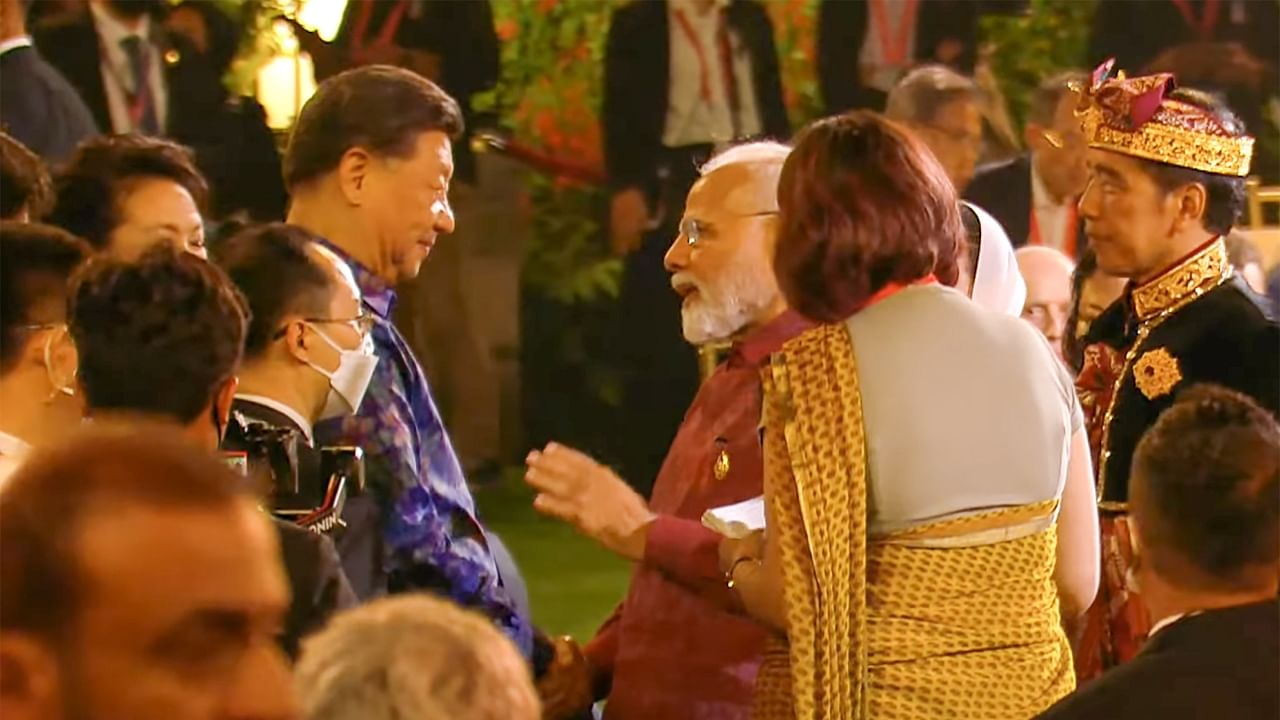
Prime Minister Narendra Modi and Chinese President Xi Jinping had reached “an important consensus” at Bali in Indonesia late last year on stabilizing India-China relations, Beijing has claimed – eight months after the brief chat between the two leaders was played down in New Delhi as an “exchange of courtesy”.
India’s National Security Advisor Ajit Doval held a meeting with Wang Yi, the director of the Chinese Communist Party Central Committee Foreign Affairs Commission, on the sideline of a BRICS meeting at Johannesburg in South Africa on Monday. A press-release issued by the Ministry of External Affairs (MEA) in New Delhi on Tuesday quoted Doval telling Wang that the “situation along the Line of Actual Control (LAC) in the western sector of the India-China boundary since 2020” had “eroded strategic trust and the public and political basis of the relationship”.
Wang on Tuesday was also reappointed as the Foreign Minister of China, with Qin Gang, who had succeeded him on December 30th of last year, being removed.
Beijing sought to play down the continuing military stand-off between the Indian Army and the Chinese People’s Liberation Army (PLA) in eastern Ladakh.
A press-release issued by the Ministry of Foreign Affairs of the Chinese government quoted Wang telling Doval that China and India were two major forces in the process of creating a multi-polar world order and both sides should follow the development trends of the times and correctly grasp the developmental direction of the bilateral relations.
“At the end of last year, President Xi Jinping and Prime Minister Modi reached an important consensus on stabilizing China-India relations in Bali,” the press release issued in Beijing quoted Wang telling Doval during the meeting in Johannesburg. “The two sides should adhere to the strategic judgment of the leaders that the two nations do not pose a threat to each other, and they are each other's development opportunities”.
Modi and Xi had attended the 17th G20 summit at Bali in Indonesia in November 2022, along with the leaders of 17 other nations and the European Union.
No formal bilateral meeting between the two leaders had taken place on the sidelines of the summit. But they had shaken hands and exchanged courtesies at the end of a welcome dinner hosted by Indonesian President Joko Widodo on November 15 – the first time after the Chinese PLA’s aggressive moves along the LAC and the Indian Army’s counter-deployment in April-May 2020 had resulted in the stand-off in eastern Ladakh.
Beijing’s claim that Xi and Modi had reached “an important consensus” in Bali is contrary to the way the November 15 encounter between the two leaders had been described in New Delhi. Sources had told journalists in New Delhi that the Prime Minister had just exchanged courtesies with the Chinese President.
Modi and Xi had met at a seaside resort at Mamallapuram in Tamil Nadu in October 2019 for an “informal summit” – a sequel to the first such engagement that had been held in Wuhan in central China in April 2018. They also held a bilateral meeting on the sideline of the BRICS summit in Brasilia in November 2019. The two leaders, however, held no such bilateral engagement in 2020 and 2021, as the military stand-off along the LAC, particularly the clash at Galwan Valley on June 15, 2020, had brought the relations between the two nations to a new low. They had also attended the Shanghai Cooperation Organization’s summit at Samarkand in Uzbekistan on September 15 and 16 last year. But neither did they hold any bilateral meeting on the sideline of the conclave, nor did any exchange of pleasantries come to the public domain – unlike the one on the sideline of the G20 summit in Bali.
Wang on July 14 held a bilateral meeting with External Affairs Minister S Jaishankar on the sideline of an East Asia Summit conclave in Jakarta. The two sides followed it up with the Wang-Doval meeting in Johannesburg on Tuesday amid speculation over the possibility of a Modi-Xi bilateral meeting on the sideline of the BRICS summit, which will be held in the South African city next month. Xi is also expected to visit New Delhi for the G20 summit, which Modi will host on September 9 and 10 next.
Wang told Doval that India and China should focus on “consensus and cooperation” and on returning the bilateral relations to the “track of healthy and stable development” expeditiously.
Doval emphasised the importance of continuing efforts to fully resolve the situation along the LAC and restore peace and tranquillity in the border areas, so as to remove impediments to normalcy in bilateral relations, which was significant not only for the two countries but also for the region and world.
Though protracted negotiations led to the mutual withdrawal of troops by both the Indian Army and the Chinese PLA from some of the face-off points along the LAC, like Galwan Valley, the northern and southern banks of Pangong Tso, Gogra Post and Hot Springs, the stand-off has not been resolved completely so far.
The PLA troops deployed in Depsang, well inside the territory of India along the LAC with China, are still continuing to block the Indian Army’s access to Patrolling Points 10, 11, 12, 12A and 13. A face-off is also continuing in Demchok.
Beijing has of late been claiming that the mutual withdrawal of troops by the Chinese PLA and the Indian Army from Patrolling Point 15 (Gogra-Hotsprings area) in September 2022 marked the restoration of normalcy along the LAC in eastern Ladakh.
China’s claim appears to be an attempt to subtly build up pressure on India to accept the “new normal” in Depsang and Demchok areas.
